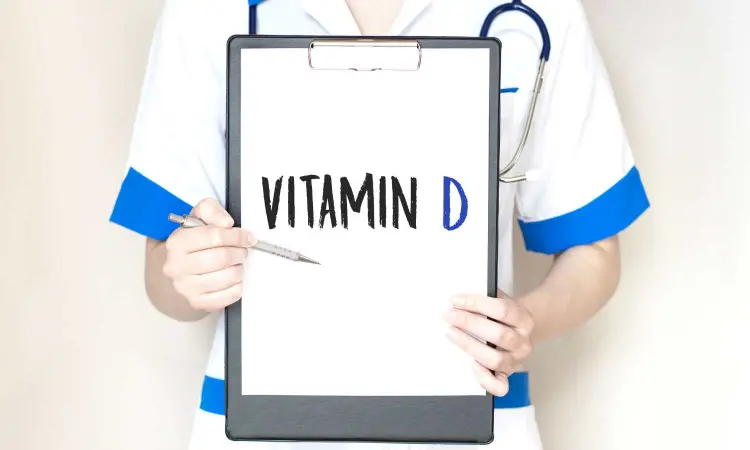- Home
- Medical news & Guidelines
- Anesthesiology
- Cardiology and CTVS
- Critical Care
- Dentistry
- Dermatology
- Diabetes and Endocrinology
- ENT
- Gastroenterology
- Medicine
- Nephrology
- Neurology
- Obstretics-Gynaecology
- Oncology
- Ophthalmology
- Orthopaedics
- Pediatrics-Neonatology
- Psychiatry
- Pulmonology
- Radiology
- Surgery
- Urology
- Laboratory Medicine
- Diet
- Nursing
- Paramedical
- Physiotherapy
- Health news
- Fact Check
- Bone Health Fact Check
- Brain Health Fact Check
- Cancer Related Fact Check
- Child Care Fact Check
- Dental and oral health fact check
- Diabetes and metabolic health fact check
- Diet and Nutrition Fact Check
- Eye and ENT Care Fact Check
- Fitness fact check
- Gut health fact check
- Heart health fact check
- Kidney health fact check
- Medical education fact check
- Men's health fact check
- Respiratory fact check
- Skin and hair care fact check
- Vaccine and Immunization fact check
- Women's health fact check
- AYUSH
- State News
- Andaman and Nicobar Islands
- Andhra Pradesh
- Arunachal Pradesh
- Assam
- Bihar
- Chandigarh
- Chattisgarh
- Dadra and Nagar Haveli
- Daman and Diu
- Delhi
- Goa
- Gujarat
- Haryana
- Himachal Pradesh
- Jammu & Kashmir
- Jharkhand
- Karnataka
- Kerala
- Ladakh
- Lakshadweep
- Madhya Pradesh
- Maharashtra
- Manipur
- Meghalaya
- Mizoram
- Nagaland
- Odisha
- Puducherry
- Punjab
- Rajasthan
- Sikkim
- Tamil Nadu
- Telangana
- Tripura
- Uttar Pradesh
- Uttrakhand
- West Bengal
- Medical Education
- Industry
Vitamin D deficiency increases risk of COVID-19 hospitalization: Study

As the latest wave of COVID-19 shows no signs of abating, University of South Australia experts say it's not just booster shots that could offer protection-healthy levels of vitamin D may also play a role.
In new research conducted in partnership with the King’s College London and Guy’s and St Thomas’ NHS Foundation, researchers found a clear link between low vitamin D levels and an increased risk of being hospitalised by the virus.
No association was found between low vitamin D and the risk of catching COVID-19.
The study assessed more than 150,000 participants in the UK Biobank, undertaking analyses to determine whether the risk of COVID-19 was higher among people with Vitamin D deficiency (<25nmol/L in their blood) and vitamin D insufficiency (25-49 nmol/L) compared with those who had normal levels of Vitamin D (50+ nmol/L). They also compared risk of being hospitalised due to COVID-19 across these three groups.
In Australia, nearly a quarter of adults – about four million people – are vitamin D deficient. Globally, about one billion people have vitamin D deficiency, with 50% of the population showing insufficient vitamin D levels.
Australian-based researcher and epidemiologist, UniSA’s Dr Kerri Beckmann, says the findings could identify vulnerable people and guide future public health advice.
“Vitamin D plays a key role in regulating the immune system, so it’s plausible that low levels may influence how the body responds to infections like COVID-19,” Dr Beckmann says.
“Our study found that people with a vitamin D deficiency or insufficiency were more likely to be hospitalised with COVID-19 than those with healthy levels of Vitamin D – but they weren’t more likely to catch the virus in the first place.”
The study also explored associations between vitamin D and COVID-19 outcomes among cancer patients, as well as across different ethnic groups.
People of Asian or African/Afro-Caribbean heritage were found to have a slightly higher risk of infection if they had low vitamin D levels, though the association between low vitamin D and severe illness was only seen in people of Caucasian backgrounds.
No association was found between vitamin D and COVID-19 outcomes among people previously diagnosed with cancer, though researchers caution this may reflect the smaller sample size.
Dr Beckmann says that while risk from COVID-19 has lessened over time, the virus remains a public health concern.
“COVID-19 may not be the threat it once was, but it still affects peoples’ well-being,” Dr Beckmann says.
“Understanding who is most at risk helps those individuals take extra precautions, including monitoring their vitamin D levels.
“It could be that people who are in poor health to start with may also have low vitamin D levels. So, at this stage, we don’t know whether vitamin D supplements in themselves could reduce the severity of COVID-19.
“It’s certainly an area worth exploring – especially as we continue to live with the virus.”
Reference:
Maria J. Monroy-Iglesias ,Rathesh Thavarajah, Effects of vitamin D on COVID-19 risk and hospitalisation in the UK biobank, PLOS One, https://doi.org/10.1371/journal.pone.0328232.
Dr Kamal Kant Kohli-MBBS, DTCD- a chest specialist with more than 30 years of practice and a flair for writing clinical articles, Dr Kamal Kant Kohli joined Medical Dialogues as a Chief Editor of Medical News. Besides writing articles, as an editor, he proofreads and verifies all the medical content published on Medical Dialogues including those coming from journals, studies,medical conferences,guidelines etc. Email: drkohli@medicaldialogues.in. Contact no. 011-43720751


